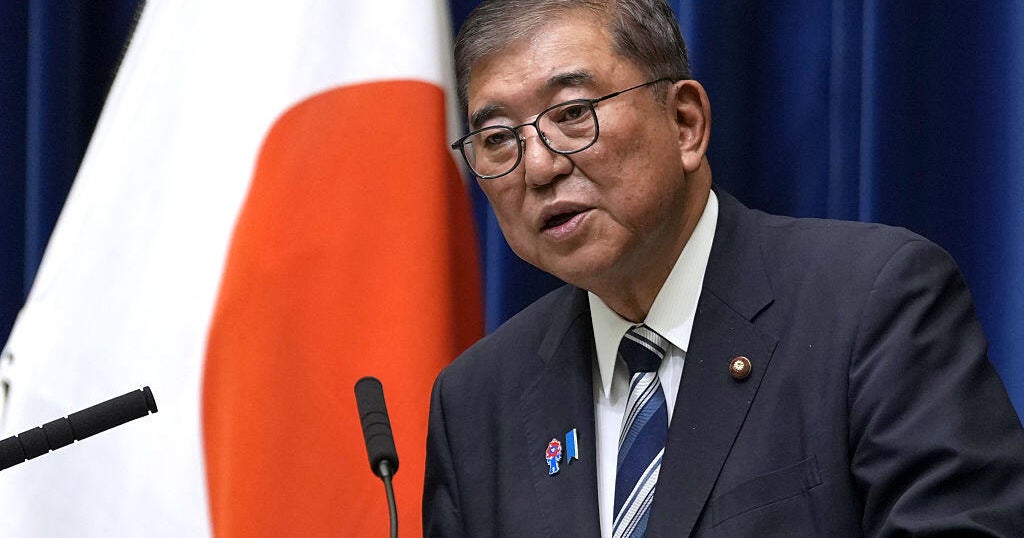Will Japan's Prime Minister Shigeru Ishiba Resign?

Published: 2025-09-07 12:46:16 | Category: Trump GNEWS Search
Japan's Prime Minister Shigeru Ishiba has announced his resignation following significant pressure from his party in the wake of a historic defeat in the July parliamentary election. Ishiba's decision marks a critical juncture for the ruling Liberal Democratic Party (LDP) as it faces a leadership vote to select his successor amidst ongoing political challenges.
Last updated: 02 September 2023 (BST)
Key Takeaways
- Shigeru Ishiba resigned after losing majority support within his party.
- The LDP is set to hold a presidential election to find Ishiba's replacement.
- Potential candidates include Shinjiro Koizumi and Sanae Takaichi.
- The party faces significant challenges, including economic issues and rising regional tensions.
- The opposition parties remain fragmented, making it hard to form a coalition against the LDP.
The Political Landscape Before Ishiba's Resignation
Shigeru Ishiba, who took office in October, faced increasing calls for his resignation after the LDP's disappointing performance in the July parliamentary elections. This election saw Ishiba's coalition fail to secure a majority in the upper house, which consists of 248 seats, further undermining his leadership and causing instability within the government.
Despite initially resisting the calls for his resignation, Ishiba ultimately decided to step down, stating that he would initiate a process to hold a party leadership vote. His resignation came just one day before the LDP was due to discuss whether to hold an early leadership election, which would have acted as a no-confidence motion against him if approved.
The Elections and Their Impacts
The July elections were pivotal, as they represented a crucial test for Ishiba's leadership. The ruling coalition's failure to achieve a majority not only reflected voter discontent but also highlighted internal divisions within the LDP. This defeat was compounded by an earlier loss in the lower house, where the coalition also failed to secure a majority. These setbacks prompted calls for a "complete overhaul" of the party, as noted in a recent review of the election loss.
Internal Party Dynamics and Pressure
In the days leading up to his resignation, Ishiba met with key party figures, including Agriculture Minister Shinjiro Koizumi and former Prime Minister Yoshihide Suga. Reports suggest that these discussions may have influenced Ishiba's decision to resign, as it became clear that he faced overwhelming pressure from both right-wing members of his party and other influential figures within the LDP.
Notably, Taro Aso, a prominent conservative figure known for his opposition to Ishiba, along with several cabinet ministers, voiced the need for an early leadership vote. Former Health Minister Norihisa Tamura also publicly advocated for Ishiba's resignation, indicating that the party's internal disputes were distracting from essential economic work.
What Lies Ahead for the LDP?
With Ishiba stepping down, the LDP is expected to announce a date for its presidential election, likely slated for early October. Potential candidates for the leadership position include Shinjiro Koizumi, known for his popularity and appeal, and ultra-conservative Sanae Takaichi, who previously held the role of Economic Security Minister. Other notable contenders include Chief Cabinet Secretary Yoshimasa Hayashi, a moderate figure and protégé of former Prime Minister Fumio Kishida.
The new leader will face significant challenges, as the LDP currently lacks a majority in both houses of parliament. This situation will require collaboration with opposition parties to pass legislation, a task that could be complicated by the fragmented nature of the opposition, which is too divided to form a substantial coalition to challenge the government effectively.
Challenges Facing the New Leadership
The next leader of the LDP will have to navigate several pressing issues, including economic policies, rising prices, and regional tensions, particularly concerning relations with the United States. Ishiba had recently succeeded in negotiating a reduction in U.S. tariffs on Japanese goods from 25% to 15%, an achievement that underscores the complexities of international trade negotiations.
Moreover, Ishiba's administration has been active in addressing significant challenges such as rice policy reforms and the impact of economic measures on the populace. The new leader will need to build upon these initiatives while also striving to unify a party that has shown signs of division.
The Legacy of Shigeru Ishiba
Shigeru Ishiba's tenure as prime minister will be remembered for its challenges and the decisive actions he took in the face of adversity. His resignation reflects not only the pressures of party politics but also the broader struggles within Japanese governance as it adapts to an evolving political landscape. The upcoming party leadership election will be pivotal in determining the LDP's direction and its ability to address the myriad issues facing the nation.
Conclusion
As Japan's political scene shifts once again, the LDP's leadership election will be closely watched not only for its immediate implications but also for its potential to shape Japan's future. The ability of the new leader to unite the party and effectively address pressing challenges will be vital in restoring confidence among voters and ensuring stability in governance.
The road ahead is uncertain, yet it presents an opportunity for renewal within the LDP. How the new leadership will approach these challenges remains to be seen as Japan continues to navigate a complex political landscape. #JapanPolitics #LDPLeadership #ShigeruIshiba
FAQs
Why did Shigeru Ishiba resign?
Shigeru Ishiba resigned due to mounting pressure from within his party following a historic defeat in the July parliamentary elections, where the LDP failed to secure a majority.
Who will succeed Shigeru Ishiba as the LDP leader?
The LDP is set to hold a presidential election to choose Ishiba's successor, with potential candidates including Shinjiro Koizumi and Sanae Takaichi.
What challenges will the new LDP leader face?
The new leader will need to address economic issues, rising prices, and regional tensions, while also managing a party lacking a majority in both houses of parliament.
How did Ishiba impact Japan-U.S. relations?
Ishiba successfully negotiated a reduction in U.S. tariffs on Japanese goods, reflecting his efforts to strengthen the Japan-U.S. alliance during his tenure.
What is the significance of the upcoming LDP presidential election?
The LDP presidential election is crucial for determining the party's direction and ability to address key issues facing Japan, as well as restoring voter confidence.



